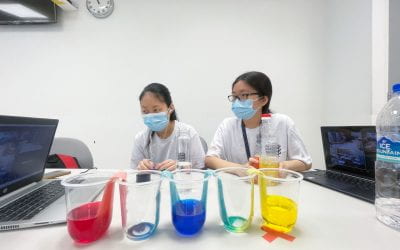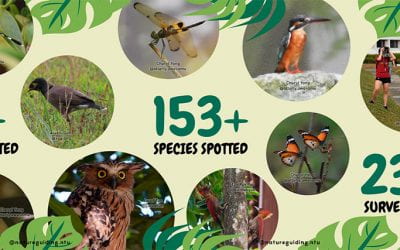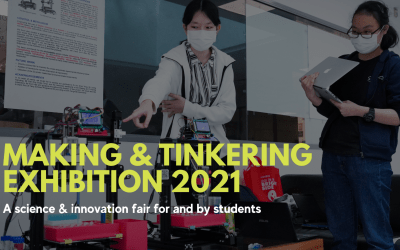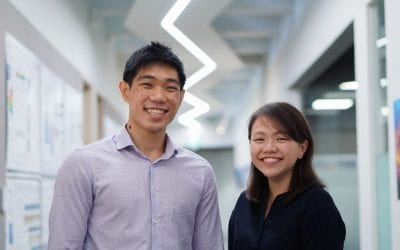The COVID-19 pandemic has affected everyone, but lower income households bore the brunt of the impact. According to The Straits Times, more than half of households earning less than $1,000 reported disruptions to their income during the circuit breaker in mid-2020. It...
Black soldier flies – Possible solution to sustainable food production?
A strong inter-disciplinary team of researchers from NUS and NTU seeks to develop a blueprint for an urban system like Singapore to integrate food waste management and sustainable food production via black soldier flies (BSF), with their relevant expertise in insect rearing, urban design, sustainability as well as food safety and nutrition.
Nanyang Awards 2021
We would like to express our heartfelt congratulations to all of the Nanyang Awards 2021. Well done and keep up the good work!
First-ever NTU BioBlitz led to ASE students winning the Mr & Mrs Kwok Chin Yan Award for Student Initiative 2021
Last year (AY20/21), current year 4 EESS Ecology students Alexis Goh and Tay Li Si led Earthlink NTU’s Nature Guiding committee as the Co-Directors. They planned and executed several events to engage the NTU community to discover our...
Making & Tinkering Exhibition on 10 & 11 Dec 2021
This year, the annual NTU College of Science Making & Tinkering Exhibition will be held on 10-11 Dec 2021. More than 15 Science and Technology projects done by NTU students in the last few months for the Making & Tinkering course will be featured. We would...
ASE graduates David Mah and Leow Si Lei win Keppel Environmental Studies Gold Medal
Our warmest congratulations to ASE graduates, David Mah and Leow Si Lei, on being awarded the Keppel Environmental Studies Gold Medal! The medal is awarded to graduating students who has obtained the highest cumulative grade point average (CGPA) for the degree of Bachelor of Science in Environmental Earth Systems Science.
Meet the CoS Valedictorians: Victoria Cahyani Tanggono (ASE)
In this series, Science@NTU gets to know the 2021 CoS valedictorians! They give a quick overview of their time in CoS, and also offer a few words of advice on staying positive during these uncertain times. First up, we have Victoria Cahyani Tanggono from the Asian School of the Environment (ASE).
Preventing future tsunami impact on major Asian ports by characterizing Tohoku port response – new PhD thesis from ASE
Every year in CoS, PhD students defend their thesis, earning their doctorate which is the highest qualification in university. Science@NTU caught up with Dr Constance Chua from the Asian School of Environmental (ASE) about her PhD experience.
Seasonal ocean acidification linked to monsoon in Singapore
Scientists from ASE’s Marine Biogeochemistry Lab have discovered interesting patterns in ocean acidification linked to Singapore’s monsoon seasons. Using stable isotopes they were able to trace the path of carbon atoms from land to sea and air in and around Singapore.
College of Science Students Emerge Champions in 2021 International Natural Sciences Tournament!
Congratulations to Team Benthos on winning the International Natural Sciences Tournament (INST)! The INST Grand Finals concluded on 25 July 2021.










